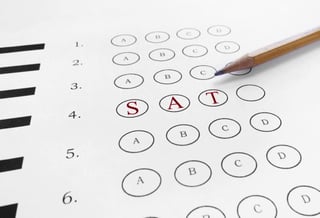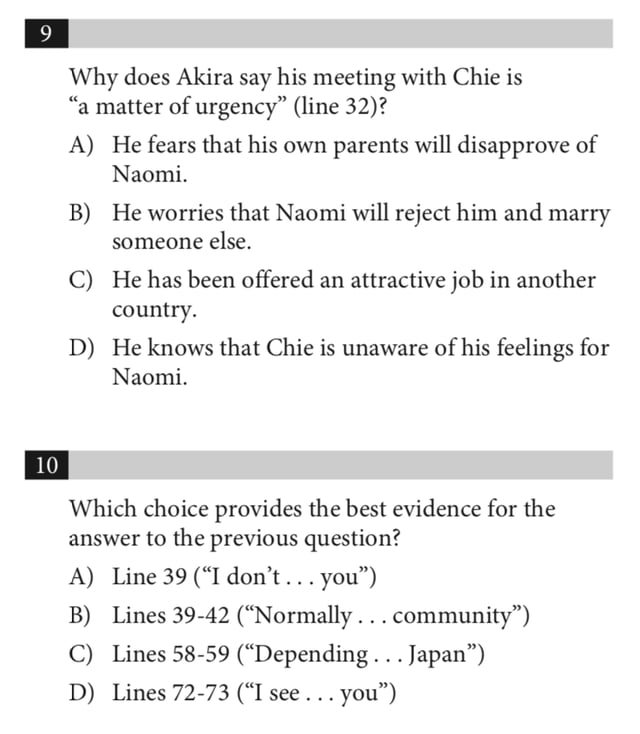About the Author
Mike S. is one of our most experienced test prep tutors. For more information on our SAT prep packages, click here.
 After your first time taking an SAT, you may walk away with the feeling that there must be some better way to take this test. It’s so long, and some of the questions are so tricky that they make everything that follows seem even harder.
After your first time taking an SAT, you may walk away with the feeling that there must be some better way to take this test. It’s so long, and some of the questions are so tricky that they make everything that follows seem even harder.
Sure, one way to get better at taking the test is to review punctuation rules and make sure you know topics like triangle and circle geometry inside out. That sort of work will give you confidence when it comes to content.
But some of the most fruitful prep you can do for the SAT is coming up with a game plan. Knowing how you’re going to tackle the test goes a long way towards helping you make sure you can execute on all of that grammar and math content you want to review. In the case of the Reading section, a good strategy is just about the only factor that will influence improved scores.
And so much of strategy comes down to what order you answer the questions in and how much energy you give specific ones. Before we develop that strategy, though, let’s talk about how those questions are laid out.
Know Order of Difficulty on Each Section
The Math sections on the SAT — both the No Calculator and Calculator sections — are laid out in the pretty predictable way. The multiple choice questions increase in difficulty as the section goes, as do the grid-in questions.
That means your easiest math questions are going to appear early in the multiple choice and grid–in segments.
With the Verbal sections (Reading and Writing & Language), the questions do not go in order of difficulty. Instead, you can expect to have a pretty even distribution of easy, medium, and difficult questions in each individual passage.
This is a good place to note that there is no such thing as a “hard passage” on the SAT when it comes to the questions. You’ll always have a pretty equal mix of easy, medium, and hard questions in each passage. If you’re finding a Reading passage written in an older style of English difficult, for example, just remember that there will still be some easy questions you can answer about it just fine!
Note: It really helps to read some literature written in that older English.
Then, Should I Complete Question in Order?
With the Math sections, absolutely answer questions in order. In fact, if you aren’t trying to score above a 700 on Math, you may want to take a little more time to make sure you’re getting the first two-thirds of all of the math questions, since those will be all the easy and medium ones.
If you are trying to score above a 700, just make sure you’re getting those easy points and not rushing on the simple stuff.
With the Writing & Language, you may as well answer the questions in order since you have to read the passage as you go. It will probably just be too confusing to answer questions out of order on this section. Plus, there’s often a question at the end of a Writing & Language passage that asks about the passage as a whole, so you’ll want a good understanding of the text.
With Reading, feel free to answer questions out of order. In fact, it may help you develop a better bigger picture understanding for the main purpose and author’s intent questions if you answer the line references first, since those questions will basically make you read the whole passage through a second time.
You may also want to specifically answer supporting evidence questions such as the one below out of order.

When you have a pair of questions where the second asks which set of lines provides evidence in support of the preceding answer, you can always flip the order you approach these in.
Here’s a simple strategy:
Remember: The lines with supporting evidence that are correct for the second question might not appear in the same part of the passage as the lines referenced in the first question.
About the Author
Mike S. is one of our most experienced test prep tutors. For more information on our SAT prep packages, click here.
Should I take the ACT or the SAT? This is one of the most common questions students have when they begin to consider the college application process.
This year, College Board—the organization responsible for designing and administering the SAT—has made several massive changes to the format of the test. While the SAT...